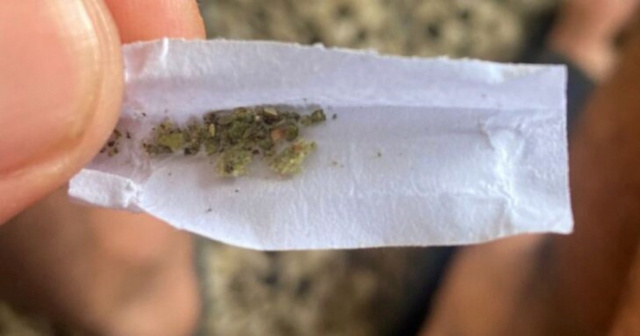A 22-year-old Cuban man was sentenced by the Provincial Court of Havana to 15 years in prison for selling hashish and other drugs.
The accused, whose face was concealed from the press, was arrested on the street, where the police seized 24 packages of synthetic cannabinoids (known as synthetic marijuana, these are laboratory-manufactured substances that are chemically similar to those of the cannabis plant but are more potent and addictive) and another 20 grams of ABD Butinaca.
As explained by prosecutor Arelis Borges Delgado, it was known that he was also dealing drugs from his home.
During a home search, they seized a significant amount of those substances, a large sum of money, and a digital scale.
In total, the quantities of synthetic cannabinoids and hashish he had on him at the time of his arrest and in his home were sufficient for the distribution of approximately 1,783 doses.
The authorities brought citizens controlled for similar offenses to witness the trial as the public, one of the tactics employed by the government in these so-called "exemplary" processes.
The prosecutor emphasized that the defendant's rights were upheld and that he can now appeal the court's decision.
This process is part of more than3,300 arrests and exemplary trials, including cases of corruption.that the regime has undertaken in recent days during its new campaign to try to curb crime, according to official media.
Frequently asked questions about drug trafficking and exemplary trials in Cuba.
Why was a young man in Havana sentenced to 15 years in prison?
The young man was sentenced to 15 years in prison by the Provincial Court of Havana for the sale of hashish and other drugs. During his arrest, authorities confiscated 24 packages of synthetic cannabinoids and 20 grams of ABD Butinaca, enough to produce approximately 1,783 doses for sale. These actions are part of exemplary trials that the Cuban government implements to combat crime on the island.
What are exemplary trials in Cuba?
Exemplary trials in Cuba are judicial processes aimed at deterring crime by showcasing the legal consequences of illegal actions. These trials are public and are used to educate the community about the implications of criminal behavior, as seen in the case of the young man convicted of drug trafficking in Havana.
What is "the chemical" and why is it so dangerous?
"The chemical" is an extremely potent synthetic cannabinoid that mimics the effects of marijuana but is much more dangerous due to its illicit production using toxic ingredients. The consumption of this drug can be up to a hundred times more potent than marijuana and causes severe impacts on the physical and mental health of young Cubans. Its low cost and rapid addictiveness have made it highly popular, especially among the youth.
How is drug trafficking affecting Cuban society?
Drug trafficking, especially of "the chemical," has raised increasing concerns in Cuba due to its widespread consumption among young people, who are experiencing severe physical and mental consequences. The lack of control and education regarding the dangers of these drugs has led to a rise in crime and overdose deaths. The regime has shown an inability to address this public health crisis.
What measures is the Cuban government taking to combat drug trafficking?
The Cuban government has intensified security operations and improved collaboration with citizens to identify and dismantle drug sale and distribution points. However, the effectiveness of these measures remains questionable due to the increasing number of violations and the complexity of the drug trafficking problem on the island.
Filed under:
